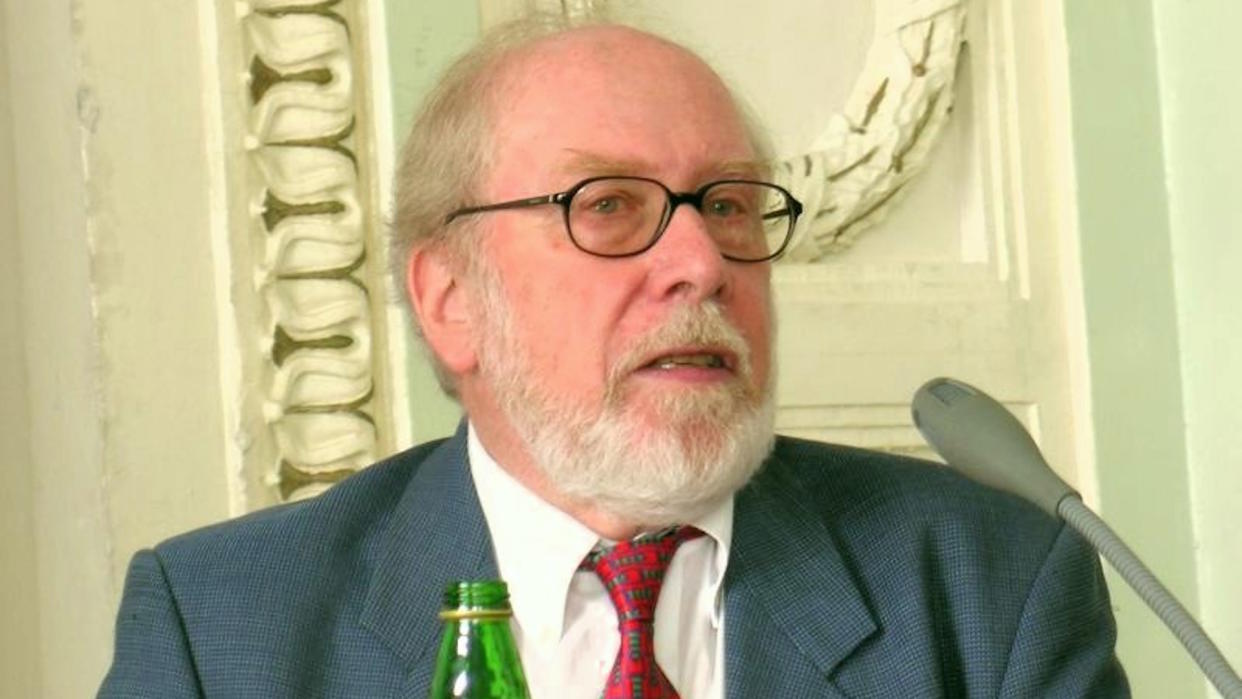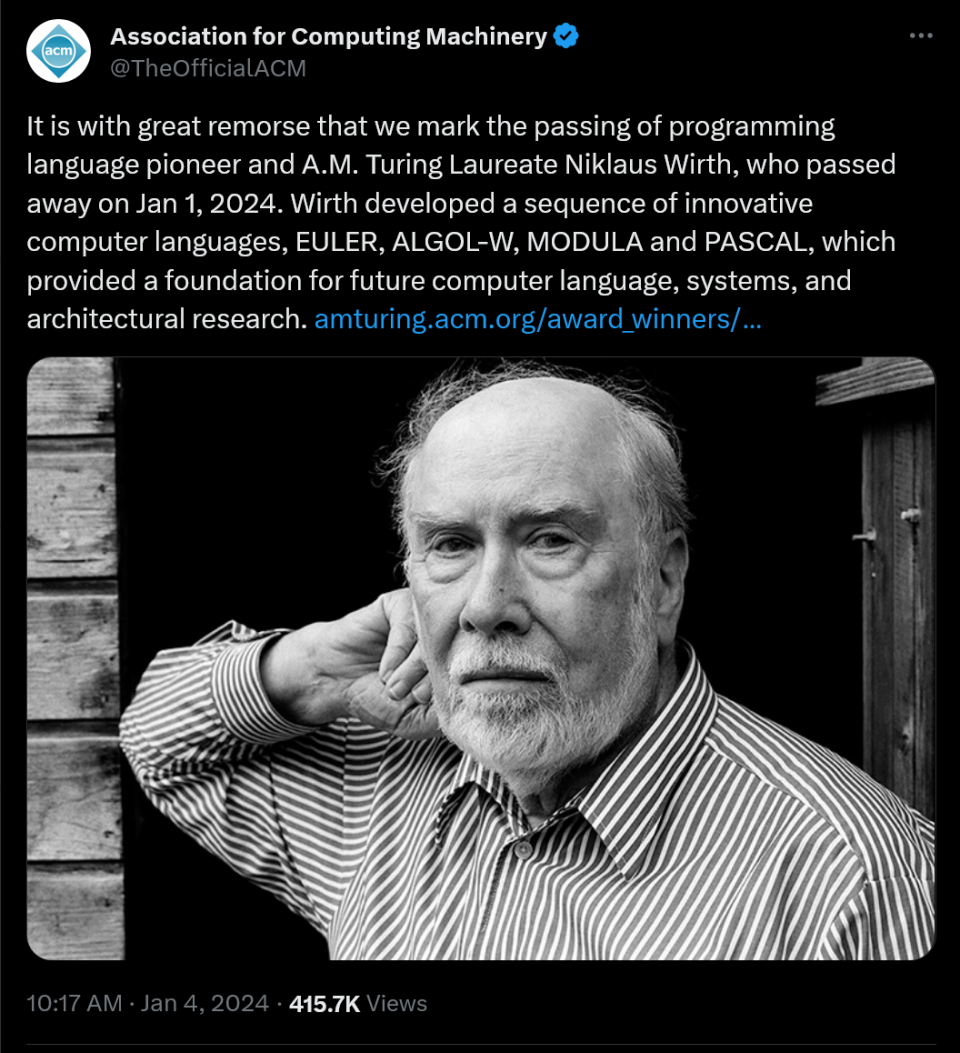Pascal creator Niklaus Wirth has died

The Association for Computing Machinery has reported that Niklaus Wirth, the Swiss computer scientist known as the creator of the programming language Pascal, has died at age 89.
Wirth was the designer of numerous programming languages through the 1960s, '70s, and '80s, but it was Pascal, released in 1970, that became his crown jewel. "Following his personal aesthetic, Pascal was simple, flexible and designed for rapid compilation into efficient code," the ACM website says. "It retained Algol’s code structures, logical completeness, and support for recursion, but stripped away some of its complexity and added support for complex and user-defined data types.
"Pascal’s great leap into mainstream use came a few years later, with the spread of personal computers. The simplicity and efficiency of Pascal made it a natural fit to their limited memory and disk space. Borland’s cheap and fast Turbo Pascal compiler cemented Pascal’s position as the leading high level computer language of the 1980s for serious personal computer software development."
Wirth's contributions to the field of computer science were recognized by the Association for Computer Machinery in 1984 when it awarded him the prestigious AM Turing Award, named after famed mathematician and early computer scientist Alan Turning and sometimes referred to as the Nobel Prize of computing.
Ten years later, he was inducted as an ACM Fellow, recognizing his "outstanding technical, professional, and service contributions" to the field of computer science.

Wirth is also known for coining Wirth's law in his 1995 essay A Plea for Lean Software, which says that software is getting slower more rapidly than hardware becomes faster—essentially a criticism of software bloat.
"An operation system had to manage with 8,000 bytes, and a compiler had to fit into 32Kbytes, whereas their modern descendants require megabytes," Wirth wrote. "Has all this inflated software become any faster? On the contrary. Were it not for a thousand times faster hardware, modern software would be utterly unusable.
"Enhanced user convenience and functionality supposedly justify the increased size of software, but a closer look reveals these justifications to be shaky. A text editor still performs the reasonably simple task of inserting, deleting, and moving parts of text; a compiler still translates text into executable code; and an operating system still manages memory, disk space, and processor cycles. These basic obligations have not changed with the advent of windows, cut-and-paste strategies, and pop-up menus, nor with the replacement of meaningful command words by pretty icons ... these details are cute but not essential, and they have a hidden cost."
I'm not a programmer, but I'm starting to feel like Wirth was my kind of guy.
Numerous people who are programmers took to Twitter to pay tribute to Wirth following the report of his death. Among them were Epic Games founder Tim Sweeney, id Software co-founder John Carmack, and Apogee Software co-founder George Broussard, who shared some reminiscences about Wirth and Pascal on Twitter. "Wirth was the creator of Pascal, and part of the earlier Algol group that in 1957 defined the foundations of modern programming languages," Sweeney wrote. "'Power through simplicity, simplicity through generality' was the name of the game. He made programming better for everyone."



